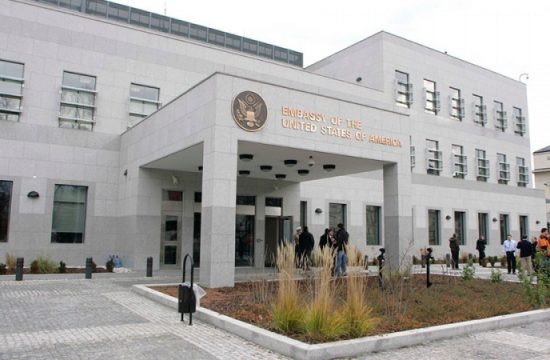
The European Parliament’s Resolution on Srebrenica, which was adopted 10 years ago, sent a clear message that reconciliation and new future for Bosnia are possible, Slovenian politician and former member of European Parliament, Jelko Kacin said on the occasion of the 10th anniversary of its adoption.
Kacin, who is the head of Slovenia’s mission to NATO, said that not every regional country adopted the Resolution.
“Ten years after its adoption, only the Bosnian Parliament failed to adopt the Resolution. This speaks volumes of how much Bosnia is ready to face its past,” Kacin said on the occasion of a round table in Ljubljana, titled “Tenth anniversary of the European Parliament’s Resolution on the Srebrenica Genocide,” organised by the International Institute for Middle-Eastern and Balkan Studies.
Asked about the frequent denials of the Srebrenica genocide, he said that it is not as frequent as it used to be.
“I think that everyone present at the round table had only one wish, that the High Representative Valentin Inzko uses his Bonn powers and adopts the Resolution,” Kacin added.
When asked to comment on Serbian Prime Minister Ana Brnabic’s denial of the genocide Kacin said for N1 that only one person decides and speaks in Serbia and all the rest no responsibility because they only repeat what was already said.
“The recognition of the genocide removes the stereotype of collective responsibility of a people. The genocide was committed and we know who decided it, who committed it and this is only one phase through which the Serb people in Bosnia can get rid of collective responsibility for this act,” Kacin noted.
The Mothers of Srebrenica Association, who also took part in the round table, said that 24 years after the war, they are still seeking truth and justice.
“We are seeking trust and reconciliation among people. This must be achieved for the sake of our grandchildren,” said Munira Subasic from the Association of Mothers of Srebrenica and Zepa enclave.
Speaking to N1, head of the International Institute for Middle-Eastern and Balkan Studies, Zijad Becirovic said that without a realistic and fair reflection on the past, it is impossible to build a future.
According to him, every resolution, including this one has a political message regardless of the time in which it was adopted. Becirovic described the Resolution as an encouragement to other states to adopt it.
He recalled that Bosnia, as a country where the genocide took place did not adopt it and that Serbia did, in a somewhat modified form.
“Resolutions are not adopted solely for the sake of their adoption. They become part of the EU’s legal order. Just imagine what would happen if such resolutions weren’t recognised or respected. They are respected because there is a certain political culture,” Becirovic noted.



